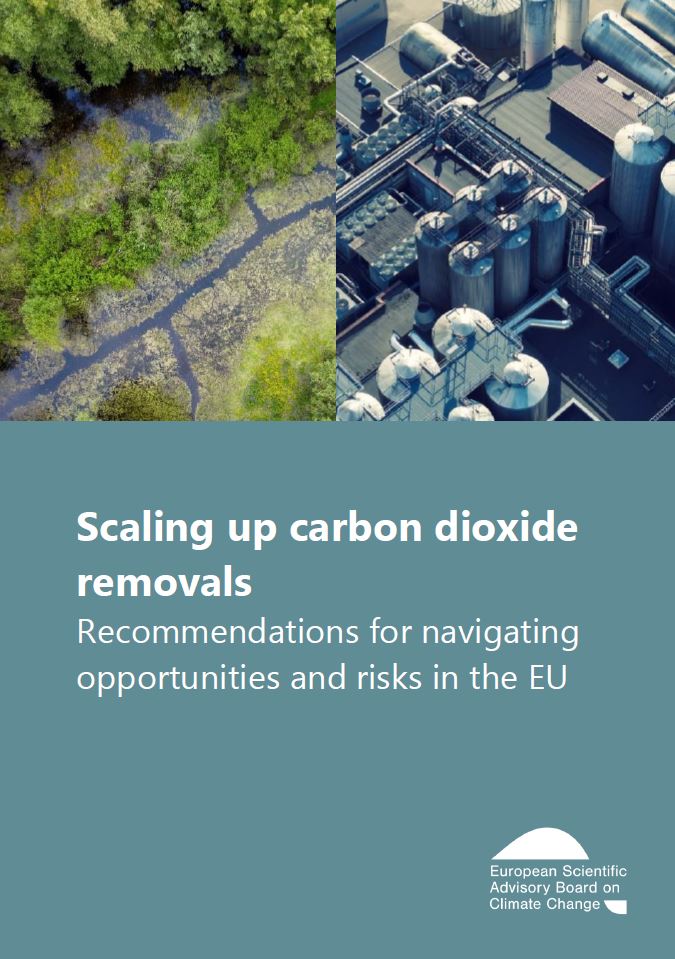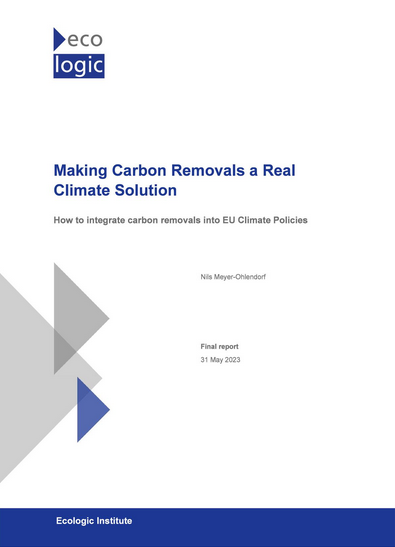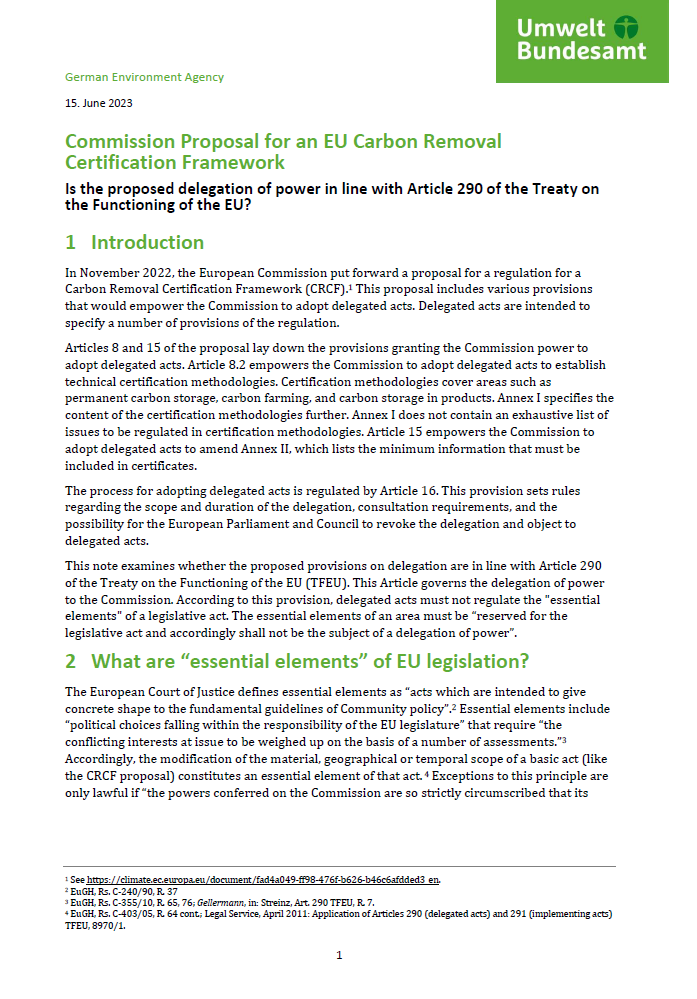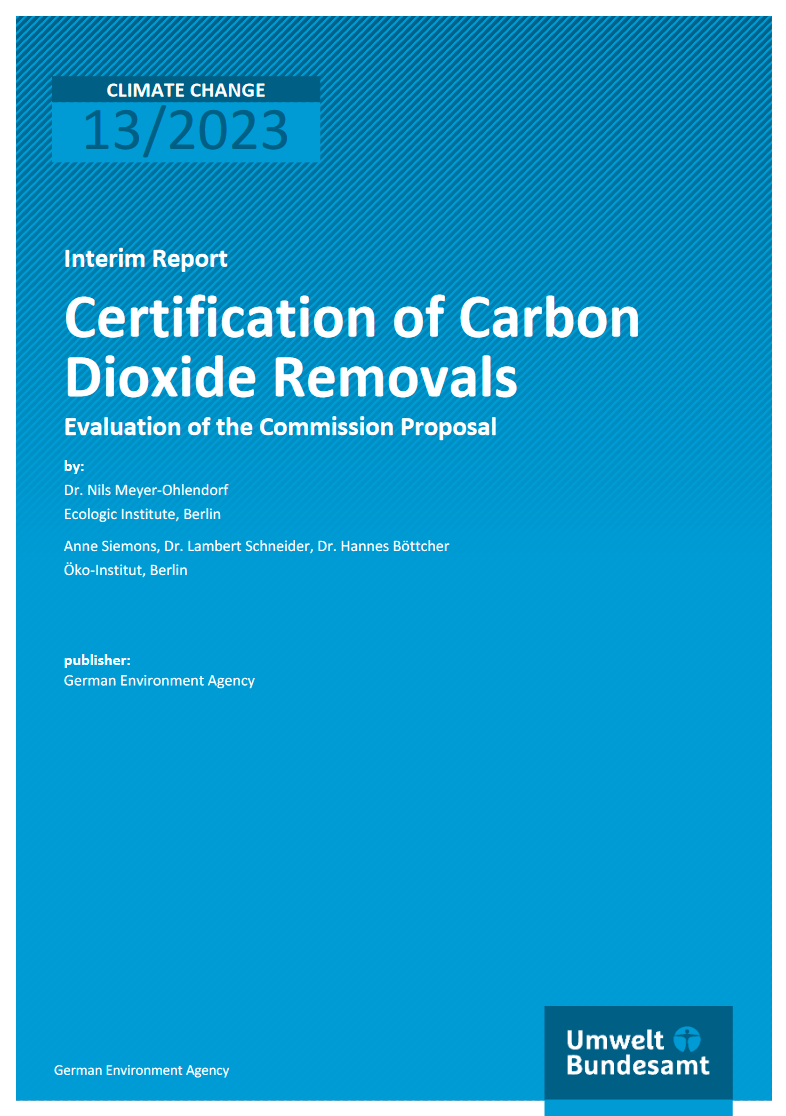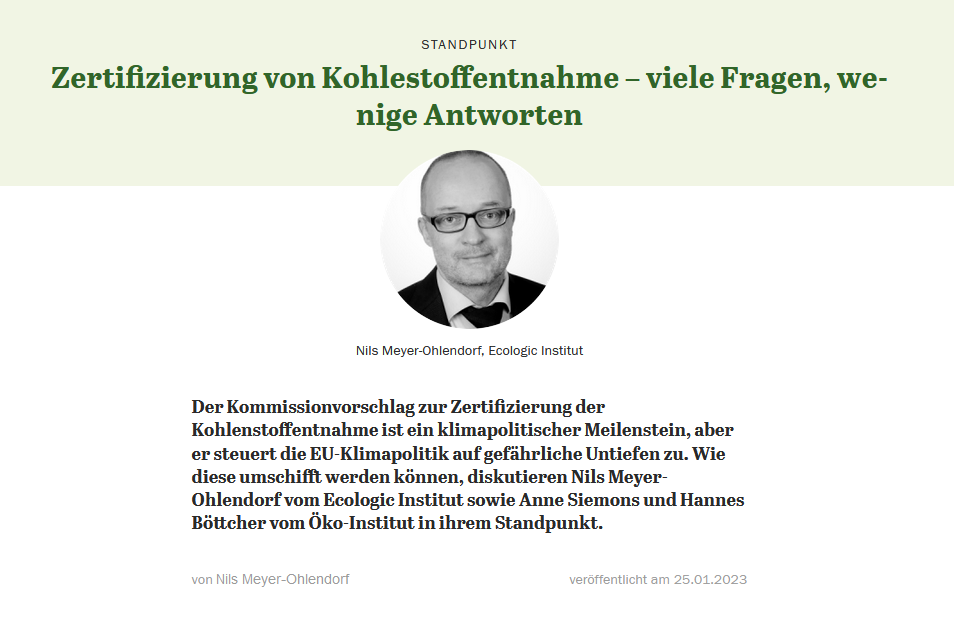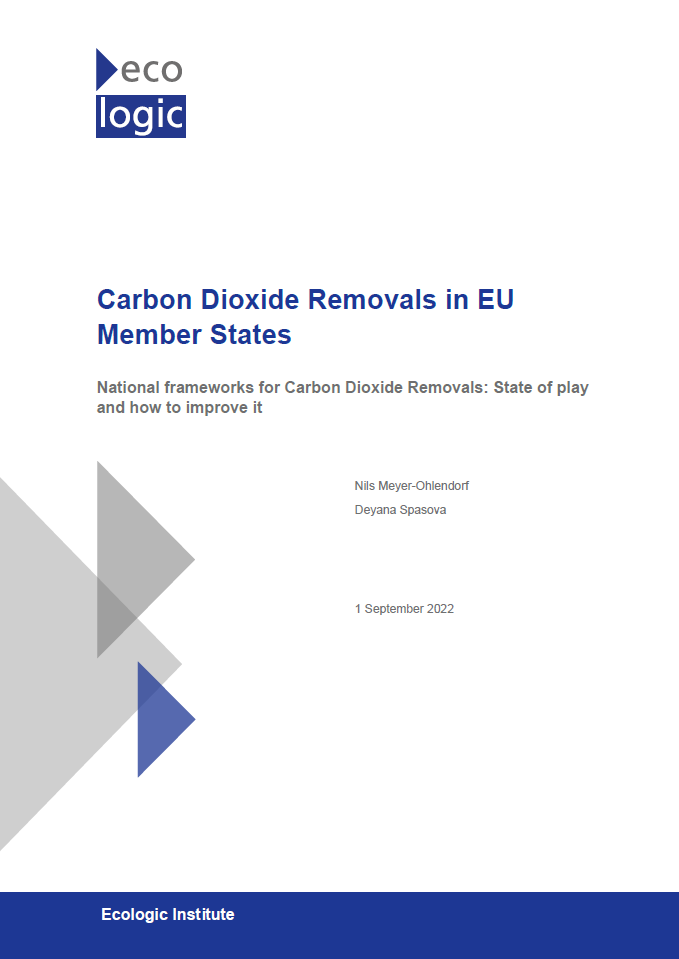© j-mel|Fotolia.com
Climate Change and Carbon Removals
Technical assistance to the European Scientific Advisory Board
- Project
- Duration
-
-
Interest in carbon removals is on the rise globally, with the European Commission proposing a regulation on the certification framework for carbon removals in 2022. Carbon removal methods can play a crucial role in counterbalancing residual emissions from some essential, hard-to-abate, human activities that continue to emit GHGs (e.g. aviation, shipping, agriculture and land-use) and work to deliver net-negative emissions. The growing interest in carbon removals can be traced back to the idea of 'net zero' emissions. This net zero goal is now enshrined in both the UNFCCC's 2015 Paris Agreement and the EU's 2021 Climate Law.
The aim of this project was to assist the European Scientific Advisory Board on Climate Change in providing an overall, long-term vision for the EU's governance of carbon removals, and offer technical assistance for the analysis of the policy architecture for carbon removals, including support with data analysis, financial analysis, literature reviews, policy evaluation, benchmarks, and expertise on forestry and agriculture. The assessment specifically focused on two main pathways for enhanced carbon dioxide removals: enhancing carbon sinks in the land sector, and deploying technological solutions.
The main points covered as part of the project:
- Status and potential of different types of carbon removals in the EU
- Sustainability-related risks and co-benefits associated with carbon removals
- Funding needs for carbon removals and corresponding policy instruments
- Regulatory requirements on land management and CCS
- Mechanisms to address non-permanence, additionality, and liability




